Vrindavan also known as Brindaban, is a historical city in the Mathura district of Uttar Pradesh, India. It is one of the most sacred places of India. It is located in the Braj Bhoomi region, and is where, according to Hinduism, Lord Krishna spent most of his childhood days. The city is about 11 km from Mathura, Krishna’s birthplace on the Agra-Delhi National Highway as NH-2. The town hosts many temples dedicated to the worship of Radha and Krishna.
Visiting Palces of Vrindaban connected with Sri Ramakrishna & His direct disciples
VRINDAVAN : Govindaji Temple ( old one which was destroyed by Aurangazeb, new one constructed by Sri Nandalal Basu, Rupa Goswami’s Sadhana Gufa and Govindaji’s appearance, Vrinda Devi temple (closed) ) Rangaji Temple, Brahma Kund, Lala Babu, Gopeshwar Shiva, Vanshi Vat (Maharaas Leel Sthana), Kala Babu Kunj (Sri Sarada Devi stayed), Gopal Guru Ashrama, Keshi Ghat, Chiraharan Ghat ( cloths of Gopis were stolen), Zaadu Mandal Ashrama ( 5000 years old tree of Jamun, foot prints of Sri Krishna on the stone Jaata {grinding }), Shringar Vat ( Sri Krishna did shringar of Radha Rani, Nityananda Prabhu stayed under the tree, idols installed by wife of Nityananda ji – Janhwa Maa, original place where both sat facing Yamuna, Thakur’s disciple Golap Maa stayed in the upper room in the campus), Imlitala – (Sri Chaitanya Mahaprabhu stayed under Tamarind tree, Sri Radha Rani cursed Tamarind tree for destroying ‘altaa’), Madan Mohan Temple – old & new (Sanatana Goswami Sadhana Kuitya, his Samamdhi pith, Grantha Samadhi Peeth, Thakurs disciple Gour Dasi’s samadhi, Aditya teela), Kaliya Daman Ghat.
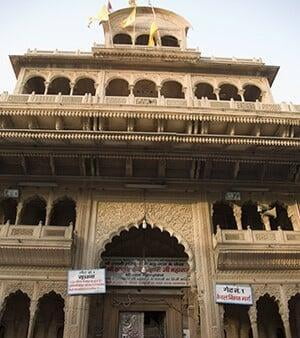
Bankeybihari Temple
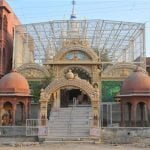
Imli Tala
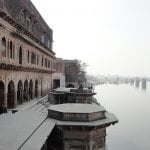
Keshi Ghat
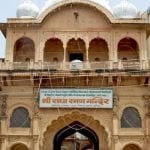
Radharaman Temple
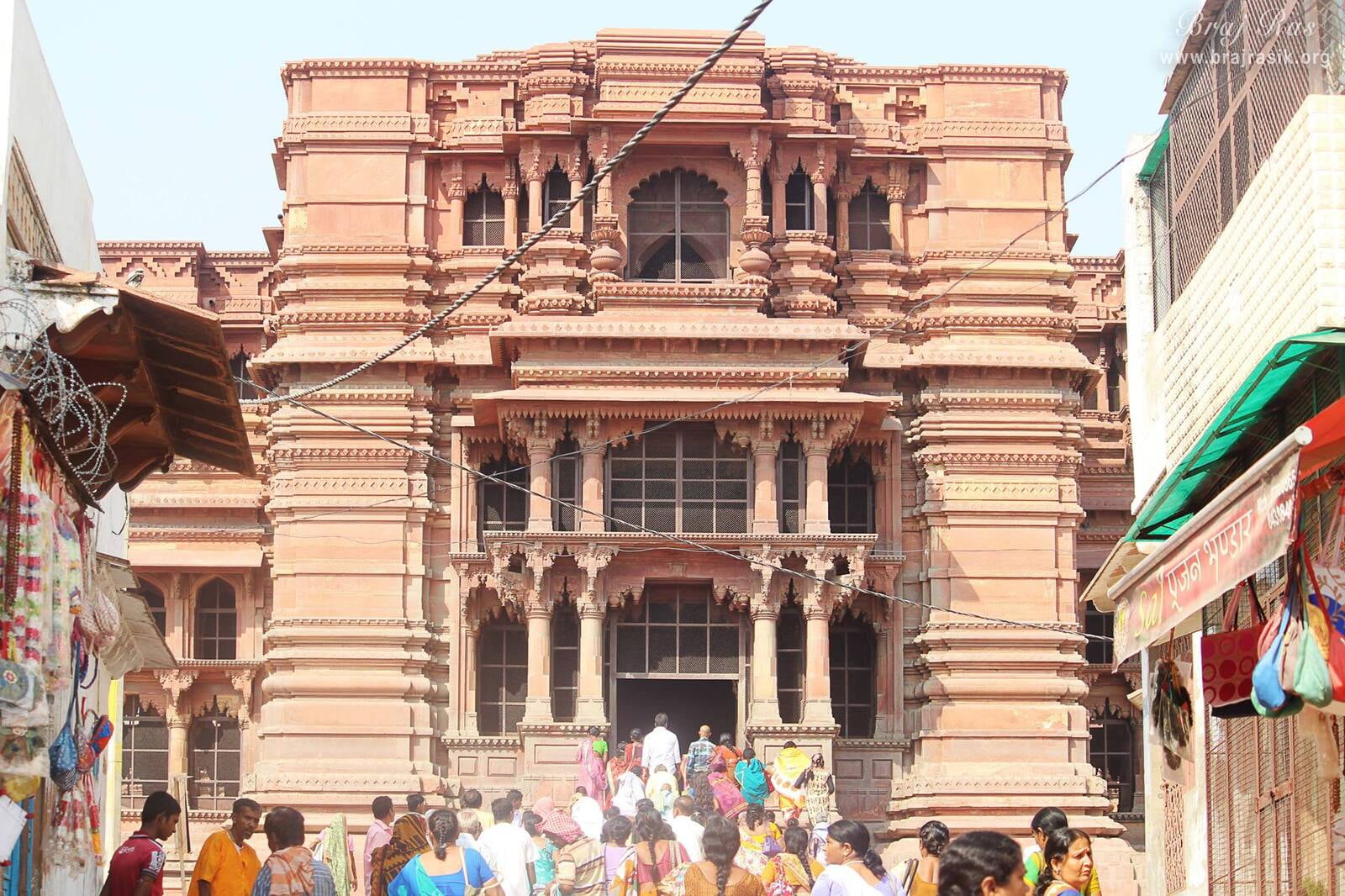
Govindji Temple
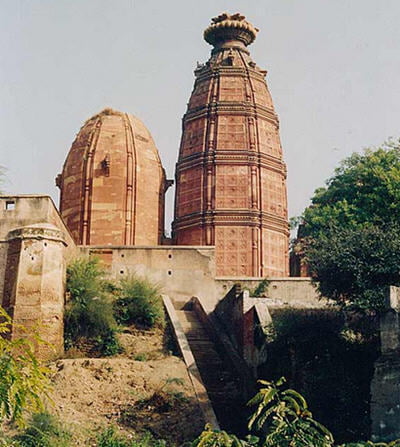
Madanmohan Temple
Nidhivan (Nidhuvan), Radha Raman Temple (Sri Sarada Devi used to visit daily, had darshan of Nistarini Devi {wife of Nava Gopal Ghosh } fanning Sri Radha Rani), Tedhe Khambe ka Mandir, Meera Bai’s house ( the original ‘Shaligarm’ which was the conversion from poisonous snake presented by Rana, original zula), Radha Damodar Temple (Gowardhan Sheela presented by Sri Krishna with the marks of flute, Lords foot print and cows foot print, Rupa Goswami’s Samadhi & Sadhana kutiya, Founder of ISKON Sri Prabhupada’s room, his kitchen room, samadhis’ of other Goswamis) Gopinath ji ka Mandir, Bilwa Mangal Samadhi, Bhut Gali, Radha Shyam Sundar Mandir, Seva Kunj. Katyayani Devi temple, Jnanagudhadi, Sant Tulsidas-Ram Mandir, Nabhaji’s Bhaktamal Granth – Bhandara, Akrur Ghat, Davanal Kunda Purana Ashrama, Taatiya Sthana.
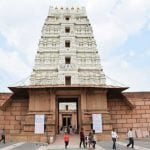
Rangaji Temple
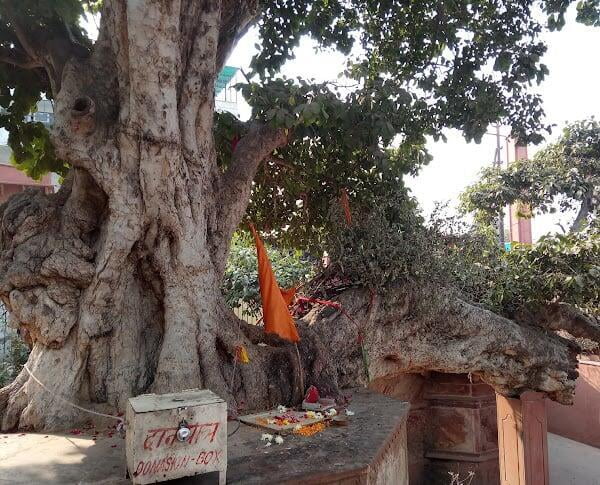
Kaliyadaman Ghat
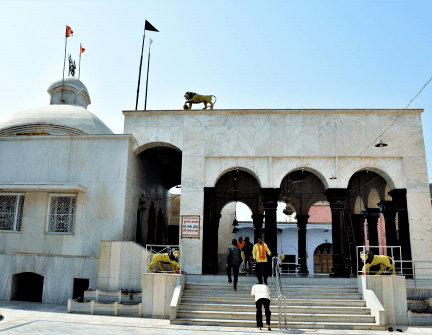
Katyayani Temple
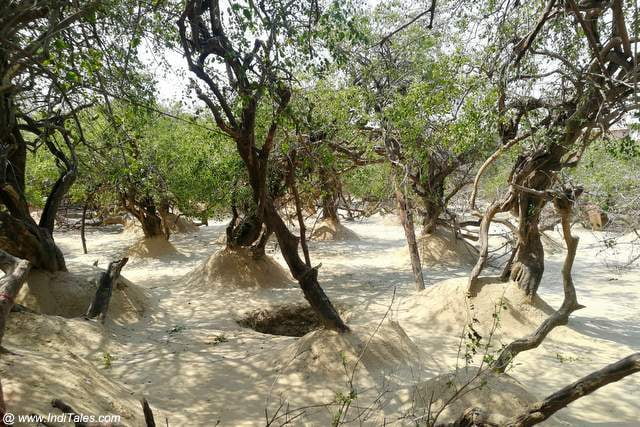
Nidhivan

Gopeshwar Shiva
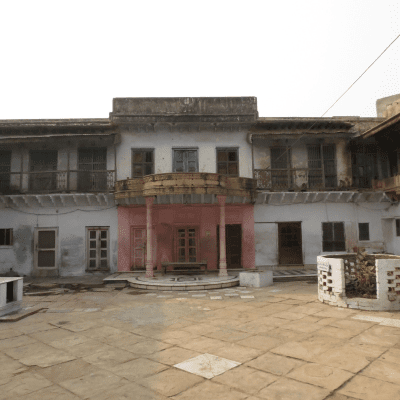
Faujdar Kunj
Sri Ramakrishna visited Vrindaban at the the age of 32 towards the end of February 1868. He came to Vrindaban via Deoghar, Kashi & Prayag (Allahabad). Mathur Babu arranged his stay at ‘Fouzdar Kunj’ in Retia Bazar. Sri Ramakrishna was accompanied by sevak Hridayram. Mathur Babu & party stayed at different place in Vrindaban and not with Sri Ramakrishna in Fouzdar Kunj.
Presently Fouzdar Kunj is maintained by Sri Mukherji brothers. The ‘Fouzadar’ name used to describe the ‘officer’ posted to act as the administrator of the Govt, (during Akbar’s times). Sri Chaitanya Das ji, a brahamin of Virbhum dist of West Bengal, was a ’Fouzdar (security guard)‘ of the famous ‘Govindaji’ temple of Vrindaban And this Chaitanya Das ji stayed in Kunj hence the name became famous as ‘Fouzdar Kunj’. Chaitanya Das ji took initiation from Sri Kriparam, Fouzdar Kunj a vaishnava saint who found the idol of ‘Gopal’ under a creeper called Mukta Lata.
Sri Ramakrishna stayed in the upper room which has semicircular varandha. It has stair case from inside to reach the room. There are no changes in the building, main gate etc till today. The building is as it is (Apl 2012), as it was during Sri Thakur’s time. Sri Ramakrishna was shown around by Sri Ishandas ji Maharaj (then staying at fouzdar Kunj). When Sri & Ishan Das ji used to take Sri Thakur at prominent temples, Mathur Babu offered gold coins to the deity.
From this ‘Fouzdar Kunj’, Sri Ramakrishna visited Shyam Kund – Radha Kund, Govardhan, Kusum Sarovar etc in palanquin with Hridayram. He was shedding tears unceasingly through out his journey in palanquin due to his extreme ecstatic yearning for Sri Krishna. Mathur Babu had arranged few coins (Rs. 150/-) for donation in the palanquin of Thakur. As Thakur could not touch the ‘Kanchana’ He used to topple down the coins with the help of the cloth whenever He found any ‘Daridra Narayana’ on the way to Govardhan.
Sri Thakur visited Nidhivan (Nidhuvan) which is located just few yards away from this ‘Fouzdar Kunj’. He met ‘Ganga Mata’ an old vaishnav sadhika staying in Nidhivan. Ganga Maata’s kutiya was on the left side of the Nidhivan on the way towards Radha Raman Mandir. Now on that ground stands a ‘Kanpurwali Dharam Shala’ of ‘Batala Asharama’. She recognized Sri Thakur as an incarnation and used to call Him ‘Dulali’. Sri Thakur had decided to stay with her in the kutiya (a small thatched hut) and wanted to spend rest of his days in Holy Vrindaban!! On one side, Hridayram was pulling Sri Ramakrishna to take Him back to Dakshineshwar and from other side Ganga Mata was insisting on Him to continue his stay in Vrindaban. Ultimately Hridayram pleaded with Sri Thakur “Mama, who will pay attention to your food as your stomach is so delicate? Apart from this, your old mother is at Dakshineshwar, who will look after her ?’ Alas ! Thakur had to change His mind and left the plan of His staying in Vrindaban.
Sri Ramakrishna went to take darshan at ‘Banke Behari’ and went into samadhi and experienced that ‘Banke Behari’ is merging into Him.
Sri Thakur took Holy Raja (Holy Dust) from Nidhivan and spread in the ‘Panchabati’ at Dakshineshwar in Kolkata, declaring that ‘from today onwards, this place has become Vrindaban!
Sri Thakur also collected a small branch of ‘Madhavi Lata’ from Vrindaban,a creeper with scented flowers, and planted in Dakshineshwar.
Hridayram used to take Sri Thakur for bathing at Kaliyadah Ghat.
Sri Thakur had darshan of ‘Vasudeva’ carrying ‘Bal Gopala’ in the basket on his head, at ‘Dhruba Ghat’ which is next to the ‘Bengali Ghat’ in Mathura,near ‘Kaila Devi Temple’.
Sri Thakur climbed to Giriraj Govardhana and exclaimed “I find everything the same,only You are not here O Krishna!”.
Sri Ramakrishna in His own words about Vrindaban:
“At the sight of Banku-Bihari, I was overwhelmed with emotion and ran to embrace Him. I was not so impressed by Govindji.
The very sight of the Kaliyadah Ghat used to throw me into ecstasy and Hriday used to get me through the bath like a child.
I would take a stroll in the evening on the sandy beach of the Yamuna, where there were big Jujula trees interspersed with small thatched huts. One day, at dusk, I saw herds of cows returning from their pasture. They waded through the Yamuna, followed by some cowherd boys. The scene at once suggested Sri Krishna to me and overwhelmed with emotions, I ran wildly crying, ‘Where is Krishna, O where is Krishna!’
I had a desire to visit Shyamkund and Radhakund. They sent me there in a Palanquin. It was a long distance; so they also gave some refreshments to satisfy our hunger on the way.
I got down to visit the Govardhan hill. The very sight of it overwhelmed me and I ran to its top, where I stood lost to outward consciousness. Then the inhabitants of the place brought me down. On the way to Shyamkund and Radhakund, I saw those old meadows and trees and plants, and birds and deer–rich with holy associations and could no more contain myself. Tears rolled down from my eyes, and wetted my cloth.”
Sayings of Sri Ramakrishna:
“Jo Ram Jo Krishna, wahi hai ye Ramakrishna…tumhare Vedanta ki Drishti se nahi,pratyaksha me!”
“The Bhava of Vrinadban stands entirely different from the world”
“Most sanctifying items on earth are ‘Vrindaban Ki Raja (holy dust of Vrindaban),
Ganga Jal (holy water of the river Ganga) & Prasada of Jagannath (Jagannath Puri)”
“Sri Radha is the ‘Chit Shakti’ of the Lord and not an ordinary woman.”

